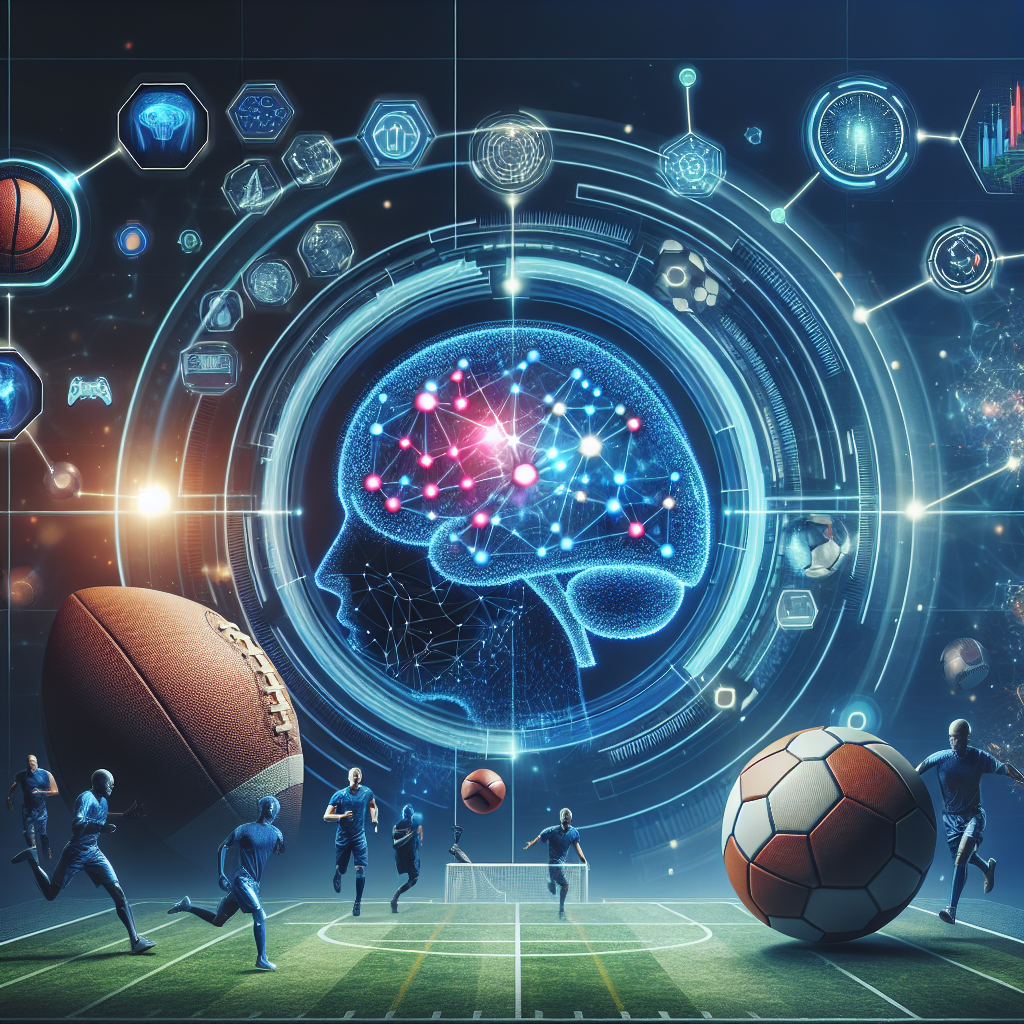In recent years, artificial intelligence (AI) has been increasingly utilized in various industries to streamline processes, improve efficiency, and enhance decision-making. One area where AI has shown particular promise is in the optimization of sports team management. From player recruitment to game strategy, AI is revolutionizing the way sports teams operate and giving them a competitive edge. In this article, we will explore how AI is being used in sports team management and the potential benefits it offers.
Player Recruitment
One of the key areas where AI is making a significant impact in sports team management is player recruitment. Traditionally, talent scouts would spend countless hours watching games, analyzing player statistics, and gathering information to identify potential recruits. However, with the help of AI, this process has been greatly streamlined.
AI algorithms can analyze vast amounts of player data, including performance statistics, injury history, and even social media activity, to identify top talent. These algorithms can also predict how well a player will fit into a team’s playing style and culture, helping teams make more informed recruitment decisions.
In addition, AI can help teams identify undervalued players who may have been overlooked by traditional scouting methods. By analyzing player data from lower leagues or less well-known teams, AI algorithms can uncover hidden gems that have the potential to make a big impact at a higher level.
Game Strategy
AI is also being used to optimize game strategy and tactics. By analyzing historical game data, AI algorithms can identify patterns and trends that can help teams make more informed decisions on the field. For example, AI can analyze the performance of different player combinations, assess the effectiveness of specific plays, and even predict the likelihood of certain outcomes based on the current game situation.
In addition, AI can help teams adapt their strategies in real-time during games. By monitoring player performance, analyzing opponent behavior, and assessing game conditions, AI algorithms can provide coaches with valuable insights that can help them make quick and effective decisions.
In some sports, AI is even being used to simulate game scenarios and help teams practice and prepare for upcoming matches. By running simulations based on historical data and player performance, teams can test different strategies and tactics in a risk-free environment, allowing them to fine-tune their game plan before stepping onto the field.
Injury Prevention
Another important aspect of sports team management is injury prevention. AI is being used to analyze player biometric data, such as heart rate, sleep patterns, and movement patterns, to identify potential injury risks and help teams develop personalized training programs to reduce the likelihood of injuries.
By monitoring players’ physical condition in real-time, AI algorithms can alert coaches and medical staff to any signs of fatigue or overtraining, allowing them to adjust training loads and schedules accordingly. This proactive approach to injury prevention not only helps teams keep their players healthy and on the field but can also improve overall performance by ensuring that players are in peak condition.
Fan Engagement
AI is also being used to enhance fan engagement and interaction. By analyzing fan behavior, preferences, and social media activity, AI algorithms can help teams tailor their marketing campaigns, ticket sales, and fan experiences to better meet the needs and interests of their supporters.
For example, AI can analyze fan data to identify trends and patterns in attendance, merchandise sales, and social media engagement, helping teams better understand their fan base and create targeted marketing campaigns. AI can also be used to personalize fan experiences, such as offering customized content, promotions, and rewards based on individual preferences and behavior.
FAQs
Q: How accurate is AI in predicting player performance?
A: AI algorithms can analyze vast amounts of player data and identify patterns and trends that can help predict player performance with a high degree of accuracy. However, it is important to note that AI is just one tool in the recruitment process and should be used in conjunction with traditional scouting methods and expert judgment.
Q: Can AI replace human coaches and scouts?
A: While AI can provide valuable insights and help streamline certain aspects of sports team management, it is unlikely to completely replace human coaches and scouts. The human element, including intuition, experience, and emotional intelligence, is still crucial in making complex decisions and building team cohesion.
Q: How can teams ensure the ethical use of AI in sports team management?
A: It is important for teams to establish clear guidelines and ethical standards for the use of AI in sports team management. This includes ensuring transparency in how AI algorithms are used, protecting player privacy and data security, and avoiding bias or discrimination in recruitment and decision-making processes.
In conclusion, AI is revolutionizing sports team management by optimizing player recruitment, game strategy, injury prevention, and fan engagement. By leveraging the power of AI algorithms to analyze vast amounts of data and provide valuable insights, teams can make more informed decisions, improve performance, and enhance the overall fan experience. While AI is not a replacement for human expertise and judgment, it is a valuable tool that can help teams stay ahead of the competition and achieve success on and off the field.

